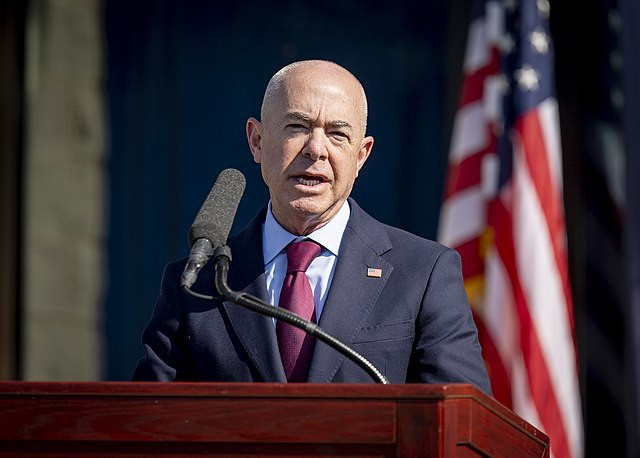In a pivotal moment for the GOP-controlled House, efforts to impeach Homeland Security Secretary Alejandro Mayorkas stumbled, revealing deep fissures within the party and raising questions about its legislative strategy. The failed vote, which sought to hold Mayorkas accountable for the Biden administration's handling of the U.S.-Mexico border crisis, underscores the complex dynamics at play within the Republican majority and the broader implications for U.S. immigration policy and governance, according to AP News.
Despite months of rigorous investigations and hearings aimed at scrutinizing the administration's border management, the Republican push for impeachment fell short due to a united Democratic opposition and a lack of full GOP consensus. The razor-thin Republican majority proved insufficient to secure the necessary votes, highlighting the challenges Speaker Mike Johnson faces in navigating a fractious and often unpredictable caucus.
The border situation remains a hotbed of contention, with record-breaking migrant crossings and a significant shift in the demographics of those seeking entry into the United States. The evolving dynamics at the border, characterized by a diversifying migrant population and strained federal resources, have become a central issue in the national discourse, prompting calls for comprehensive immigration reform.
Republicans attribute the border crisis to Secretary Mayorkas's policies, accusing him of undermining effective measures from the previous administration and implementing new policies that they argue exacerbate the situation. Their critique extends to allegations of Mayorkas misleading Congress regarding border security, further fueling their impeachment endeavor.
In contrast, Democrats and some legal experts argue that the impeachment efforts stem from policy disagreements rather than the constitutional grounds required for such a drastic measure. They posit that the challenges at the border are part of a global migration trend, driven by a myriad of factors beyond the control of any single administration. Furthermore, they emphasize the need for a legislative overhaul of the immigration system, a task that falls squarely on Congress.
The fallout from the failed impeachment vote extends beyond the immediate political ramifications for the GOP. It casts a shadow over the party's ability to govern effectively, particularly in light of Speaker Johnson's subsequent struggles, including the failure to pass key legislation such as aid for Israel. These setbacks not only expose the internal discord within the Republican ranks but also raise concerns about the House's capacity to address critical national and international issues.
As the GOP regroups and contemplates its next steps, the specter of another impeachment attempt looms. However, the path forward is fraught with uncertainty, both in terms of securing the necessary support within the House and the unlikely prospect of conviction in the Democrat-controlled Senate.
This episode serves as a stark reminder of the intricate balance of power in Washington and the profound challenges facing lawmakers as they navigate the complex interplay of policy, politics, and the pressing needs of the nation.






